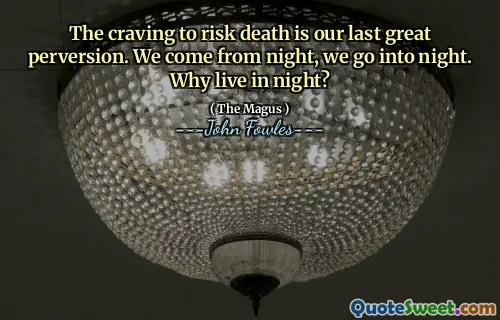John Fowles was a prominent British novelist known for his unique storytelling style and profound philosophical themes. He is best known for his works such as "The Collector," "The Magus," and "The French Lieutenant's Woman," which explore the complexities of human nature, existential dilemmas, and the nature of freedom. Fowles often blended reality with metafiction, challenging readers' perceptions of narrative and authorship. His writing career began in the 1960s, and he quickly gained recognition for his innovative narrative techniques. In "The French Lieutenant's Woman," for instance, Fowles employs a non-linear narrative that allows for multiple endings, reflecting the choices faced by the characters. His works often feature protagonists who grapple with their identities and moral choices, contributing to the rich tapestry of 20th-century literature. Fowles's influence extends beyond his novels, as he also wrote essays and criticism that delve into art, nature, and philosophy. His literary legacy is marked by a striving for authenticity and a deep engagement with the human condition, making him a key figure in modern English literature.
John Fowles was a significant British author recognized for skillful storytelling and deep philosophical explorations in his novels. His notable works, such as "The Collector," "The Magus," and "The French Lieutenant's Woman," examine themes of human complexity, existential questions, and freedom.
Beginning his career in the 1960s, Fowles was acclaimed for his innovative narrative styles. In "The French Lieutenant's Woman," he incorporated non-linear storytelling with multiple endings, challenging readers' expectations and reflecting the characters' choices.
Beyond novels, Fowles contributed essays and criticism on art, nature, and philosophy, pursuing genuine engagement with the human experience. His literary contributions have solidified his importance in modern English literature and continue to inspire readers and writers alike.
More »
Today Birthdays
1729 -
Edmund Burke
1949 -
Haruki Murakami
1954 -
Howard Stern
1876 -
Jack London
1993 -
Zayn Malik
1951 -
Kirstie Alley
1863 -
Swami Vivekananda
1923 -
Alice Miller
1987 -
Naya Rivera
1825 -
Brooke Foss Westcott
1944 -
Joe Frazier
1951 -
Rush Limbaugh
1964 -
Jeff Bezos
1978 -
Jeremy Camp
1628 -
Charles Perrault
1856 -
John Singer Sargent
1970 -
Kaja Foglio
1953 -
Rick Santelli
1986 -
Gemma Arterton
1968 -
Raf Simons
1958 -
Christiane Amanpour
1966 -
Olivier Martinez
1996 -
Ella Henderson
1917 -
Maharishi Mahesh Yogi
1949 -
Ottmar Hitzfeld
1928 -
Ruth Brown
1968 -
Heather Mills
1946 -
George Duke
1968 -
Rachael Harris
1923 -
Ira Hayes


